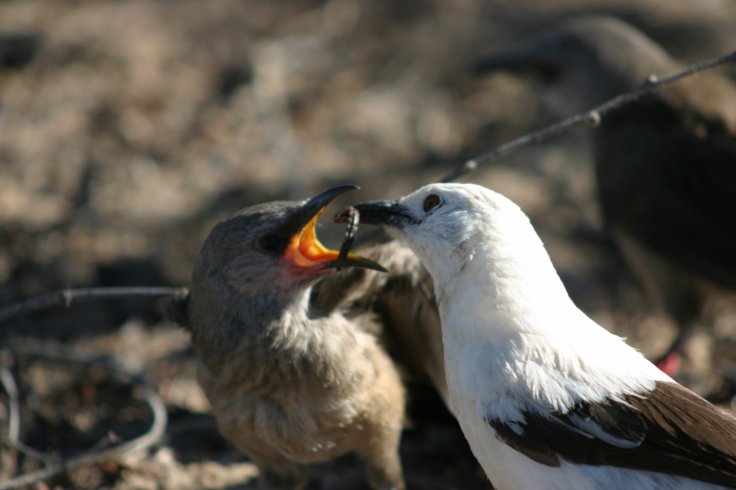
Just like human parents of millennials who prefer not to send out their children go out and face the tough world outside, birds too prefer to stay put with their children who refuse to leave early. When some adult offspring are slow and show their unwillingness to leave parents, parent birds prefer to keep them at home, finds a new UBC research on a desert-dwelling African bird.
Martha Nelson-Flower, a postdoc at UBC, who studied the behaviour of wild southern pied babblers, which live in family groups of up to 14 in the Kalahari Desert in South Africa, found better prospects elsewhere are equally pulled by other reasons such as family dynamics between brothers and stepfathers.
Her findings, published in the Journal of Animal Ecology, is the outcome of her 11 years of data showing how the dispersal of male and female babblers was affected by their position in the group social hierarchy, conditions in the environment, and the benefits of staying in their group.
She discovered major disparities between the sexes as female birds were more independent, but tended to remain at home when in a larger and safer group, while males left only when they had improved chances of leading a group of their own elsewhere.
"Males often leave when there's more rain, which probably means there's more food in the environment," said Nelson-Flower.
Males also leave when there are more breeding vacancies for them or when the distance between groups is small. Males are more likely to encounter other groups and prefer to check to see if there are any breeding vacancies in those groups, she explained.
A male's position in the bird group's social hierarchy made a big difference for them to leave or not to disperse. Since brothers queue for an opportunity to inherit the leadership of their group, or that of a neighbouring group; by leaving early, younger brothers could boost their queue position and improve their prospects.
Another interesting fact is that males with step-fathers also left early, likely because step-fathers prioritize their own younger sons in the queue for leadership.
But females come lower in the pecking order and yet they do not leave early, biding their time, waiting for opportunities to overthrow dominant females in other groups. Sometimes they seek to achieve dominance through extreme aggression, suggests the research study.
"A large, subordinate strong female would go to a group with a dominant female, and attack that female until she left. Sometimes sisters would come in pairs, and they would work together," said Nelson-Flower.









